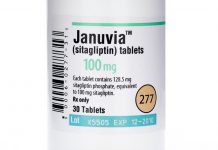August 11, 2022
2 minutes to read
Source / Disclosures
Posted by:
Disclosures:
Facilitator reported receiving speaking and consulting fees from Dexcom and Tandem Diabetes Care, and works as a consultant at Capillary Biomedical. The Messer Foundation receives grants for research and projects from Abbott, Beta Bionics, Dexcom, and Insulet Corp. and Medtronic and Tandem Diabetes Care. Please see the study for all relevant financial disclosures by other authors.
Teenagers and young adults with type 1 diabetes They had lower glucose levels on the days they reported feeling more involved in managing their diabetes, according to results published in diabetes medicine.
In adolescents and young adults with diabetes, daily personal factors such as self-esteem, healthy perception, and plans or desire to self-manage diabetes all influence daily blood sugar. Laurel H. Messer, Ph.D., RNAnd the An assistant professor of pediatrics at the Barbara Davis Diabetes Center, University of Colorado Anschutz School of Medicine, told Healio. “These circadian predictors may be considered new targets for interventions to help support adolescents in diabetes care, particularly in terms of helping to stimulate planning and willingness to manage diabetes first in the morning.”

facilitator is Assistant Professor of Pediatrics at Barbara Davis Diabetes Center, University of Colorado Anschutz School of Medicine.
Messer and colleagues conducted a 2-week longitudinal observational study of 88 adolescents and young adults with type 1 diabetes who used Continuous glucose monitoring, an insulin pump or smart pen, and a smartphone for diabetes management (mean age, 17.6 years; 54% female; 90% white). Participants downloaded continuous glucose monitoring and insulin delivery data at the end of the two-week period to assess time in range, average sensor glucose and user-initiated bolus. On six randomly selected days, participants completed a 25-item Participation Prediction Survey evaluating biopsychosocial factors that can influence daily engagement in diabetes management. The survey was conducted in the morning and participants answered each question on a 4-point Likert scale. At the end of each assessment day, participants completed an end-of-day goal survey on a 5-point Likert scale to assess achievement of diabetes management goals.
Time in range predictions, blood sugar variability
Mean time-in-range fluctuation of 16% and mean absolute sensor glucose fluctuation of 30.4 mg/dL per day per participant (s < .001 for both). The mean absolute change in the number of doses administered fluctuated by 2.2 per day (s



